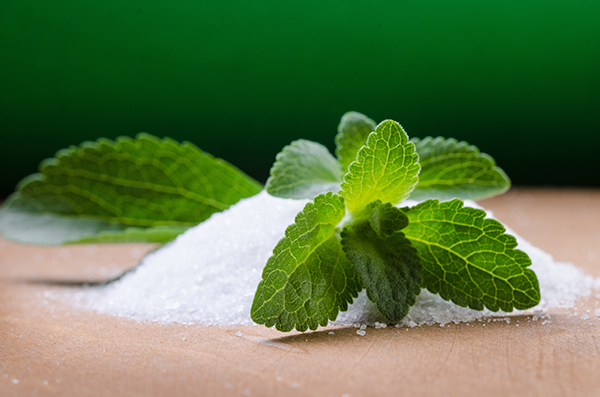
Advertisement
Originally developed in the 1920s to help children with epilepsy, the ketogenic diet has recently increased in popularity as an effective diet for weight management.
Popular among athletes and the like, the ketogenic diet shares a lot of similarities with the Atkins diet, especially in the sense that it strictly monitors — if not entirely eliminates — carbohydrate intake.
This, according to medical experts, allows the body to mimic a state of starvation by entering ketosis. Ketosis is a metabolic state in which the body uses stored fats instead of glucose as its primary energy source.
“The idea behind keto is to keep your fat-accumulating hormone, insulin, low by keeping your blood sugar low. In doing so, you turn on fat-burning genes while suppressing the abdominal-fat-amassing machinery,” explained Vincent Pedre, a New York-based internist.
In order to achieve this, those who are on the keto diet eat less than 25 grams (g) of carbohydrates a day. To keep themselves full, they consume foods rich in healthy fats and foods with moderate protein content.
As the keto diet strictly limits carbohydrate intake, dieters are also required to drastically cut down on sugars, which are formed through the breakdown of carbohydrates. They are also required to reduce their intake of table sugar (sucrose), fruit sugars (fructose), dairy sugar (lactose) and glucose, which is found in some vegetables. Because of this, it can be a challenging diet to follow — especially for those with a sweet tooth.
Fortunately, however, there are various low-carb sweeteners that people on the keto diet can enjoy.
Here are some of them:
Stevia
Available in both powder and liquid form, stevia is derived from the candy leaf plant (Stevia rebaudiana), which is so named because of its extremely sweet taste.
Native to Paraguay and Brazil, the stevia plant contains compounds known as steviol glycosides, which are estimated to be up to 300 times sweeter than sugar.
Because of this, people are inclined to use a smaller amount of stevia than the amount they would normally use for table sugar.
There are, however, a few cons to using this natural sweetener, chief of which is its unpleasant, slightly bitter aftertaste.
Monk fruit
Also known by its scientific name Siraitia grosvenorii, the monk fruit, or luo han guo, is a member of the gourd family and is native to southern China and northern Thailand.
Much like stevia, the monk fruit is known to be sweeter than table sugar. It also contains zero calories and is said to have antioxidant properties.
According to experts, monk fruit owes its incredible sweetness to unique antioxidants called mogrosides, which are 100 to 250 times sweeter than table sugar.
Because of its extremely sweet flavor, only a small amount of monk fruit is needed to sufficiently sweeten foods and drinks.
Erythritol
Erythritol, as noted by experts, is a type of sugar alcohol that stimulates the sweet taste receptors on your tongue in order to mimic the taste of sugar.
Made by fermenting a simple sugar derived from corn, erythritol is almost as sweet as regular sugar, but contains only five percent of the latter’s calories.
According to experts, erythritol can be used for baking and cooking and can be substituted for sugar in a wide variety of recipes.
Keep in mind, however, that erythritol does not dissolve as well as sugar, which often results in food having an unpleasant, gritty mouthfeel.
Xylitol
Just like erythritol, xylitol is a naturally occurring alcohol that’s found in fruits, vegetables and even wood.
According to the California Dental Association, xylitol is equal in sweetness and volume to sugar, and thus, can be used to sweeten food items, such as cereals and hot beverages. It can also be used to sweeten pastries and breads. Xylitol, however, cannot be used to make yeast rise.
An extremely sweet substance, xylitol is actually unique because, unlike sugar, it helps protect teeth instead of causing tooth decay.
Unlike stevia and monk fruit, however, xylitol contains about 4 calories and 4 g of carbs per teaspoon. This means that it should be added with care to a keto diet, especially if you’re trying to keep your calorie intake under a certain amount.
Yacon syrup
Yacon syrup is made from the roots of the Yacon plant (Smallanthus sonchifolius) and is described as having a caramel-like taste. It is also about half as sweet as honey.
Native to South America where it is grown as a prized crop, the Yacon plant is rich in fructooligosaccharides (FOS), a type of soluble fiber, as well as inulin, and several simple sugars like sucrose, fructose and glucose.
As noted by experts, FOS cannot be digested in the intestines and as such, serves as food that nourishes good gut bacteria. But as with all food products, there are cons associated with excess Yacon syrup intake.
According to studies, when taken in excess, Yacon syrup can lead to uncomfortable side effects, such as abdominal pain, gas, bloating and diarrhea. In order to avoid these side effects, experts recommend that individuals consume only a maximum of about 20 g of Yacon syrup per day.
Following a ketogenic diet, which involves limiting your carbohydrate intake and reducing added sugar consumption to reach a state of ketosis, can be nothing short of challenging. Luckily, however, there are many organic and natural sweeteners that can be used by those on a low-carb keto diet, and some of these sweeteners even possess impressive health benefits. Just remember to use these sweeteners in moderation to enjoy their benefits.
Sources:
CDA.org[PDF]
Advertisements







